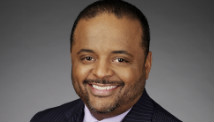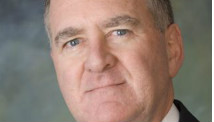Jesse Jackson Jr. and his wife Sandi intend to plead guilty to federal charges alleging the former congressman misused $750,000 in campaign funds while she understated their income on tax returns for six years, their lawyers say.
Jackson Jr., 47, a Democrat from Chicago, was charged in a criminal information today with one count of conspiracy to commit wire fraud, mail fraud and false statements. He faces up to five years in prison, a fine of up to $250,000 and other penalties.
Sandi Jackson was charged with one count of filing false tax returns. She faces up to three years in prison, a fine of up to $250,000 and other penalties.
Jackson Jr. is accused of diverting $750,000 in campaign funds for personal use.
Federal authorities allege that Jackson Jr. used campaign funds to purchase a $43,350 men’s gold-plated Rolex watch, $5,150 worth of fur capes and parkas, and $9,588 in children’s furniture. The purchases were made between 2007 and 2009, according to the criminal information, which authorities noted is not evidence of guilt.
Other expenditures listed by prosecutors include $10,105 on Bruce Lee memorabilia, $11,130 on Martin Luther King memorabilia and $22,700 on Michael Jackson items, including $4,600 for a "Michael Jackson fedora."
The government also alleged that Jackson Jr. made false statements to the House of Representatives because he did not report approximately $28,500 in loans and gifts he received.
"He has accepted responsibility for his actions and I can confirm that he intends to plead guilty to the charge in the information," Jackson Jr.'s attorney Brian Heberlig said.
Sandi Jackson is accused of filing incorrect joint tax returns with her husband for calendar years 2006 through 2011, reporting income “substantially less than the amount of income she and her husband received in each of the calendar years,” with a substantial additional tax due.
Her attorneys released a statement saying she has "reached an agreement with the U.S. attorney’s office to plead guilty to one count of tax fraud."
Jackson Jr. stepped down from the House of Representatives on Nov. 21, citing both his poor health and an ongoing federal probe of his activities. In a statement then, he said he was doing his best to cooperate with federal investigators and to accept responsibility for his “mistakes.”
In a statement today, Jackson Jr. said:
“Over the course of my life I have come to realize that none of us are immune from our share of shortcomings and human frailties. Still I offer no excuses for my conduct and I fully accept my responsibility for the improper decisions and mistakes I have made. To that end I want to offer my sincerest apologies to my family, my friends and all of my supporters for my errors in judgment and while my journey is not yet complete, it is my hope that I am remembered for the things that I did right.”
Sandi Jackson's attorneys released a statement saying she "has accepted responsibility for her conduct, is deeply sorry for her actions, and looks forward to putting this matter behind her and her family. She is thankful for the support of her family and friends during this very difficult time."
Jackson's father, the Rev. Jesse Jackson Sr., said he wanted to attend President Barack Obama's speech Friday at Hyde Park Academy in Chicago but traveled to Washington, D.C., instead, to be with family members while they waited for the federal charges to come down.
"This has been a difficult and painful ordeal for our family," the civil rights leader said.
The Rev. Jesse Jackson said he would "leave it up to the courts system" to determine his son's fate.
"We express our love for him as a family," he said.
Jackson Jr.’s political fortunes sank beginning late in 2008, when he sought unsuccessfully to have Gov. Rod Blagojevich appoint him to the Senate seat that came open with the election of then-Sen. Barack Obama to the White House.
Jackson Jr. or an emissary reportedly offered to raise up to $6 million in campaign cash for Blagojevich, who now is in federal prison for crimes including trying to sell the Senate seat. Jackson Jr. was never charged in the case, which became the subject of an ethics probe in the House.
Last June, Jackson Jr. began a mysterious leave of absence for what originally was called “exhaustion” but later emerged as bipolar disorder. He spent months in treatment and won re-election Nov. 6 despite never returning to service in the House or staging a single campaign appearance.
A campaign to replace him is being conducted now in the 2nd Congressional District, which includes parts of the South Side and south suburbs.
Jackson Jr. was first elected to Congress in 1995. Sandi Jackson was a Chicago alderman until she resigned her post last month. They have two children.
Sandi Jackson’s firm, J. Donatella & Associates, has been paid at least $452,500 from her husband’s campaign committee since 2002, Federal Election Commission reports show.
The former congressman’s campaign committee reported $105,703 in cash on hand on last Nov. 26, FEC reports show. Leading up to the last election, it reported $1 million in contributions and $1.06 million in operating expenditures, reports show.
Once considered a potential candidate for mayor of Chicago, Jesse Jackson Jr.’s reputation has taken a hit in recent years because of the Blagojevich scandal and also because of news reports in 2010 that a suburban Chicago businessman told federal investigators he twice paid to fly a woman — a hostess from a Washington, D.C. bar — to Chicago at Jackson’s request.
In the wake of the reports, Jackson Jr. issued a statement calling the woman a “social acquaintance” and describing the matter as a “private and personal matter between me and my wife that was handled some time ago.”
Jackson Jr. subsequently told the Tribune editorial board he had apologized to "my absolute best friend, my wife."
Still, he also acknowledged he asked longtime supporter Raghuveer Nayak to pay to fly the woman from Washington to Chicago. House ethics rules prohibit members from soliciting gifts of personal benefit. Jackson said Nayak’s purchase was "a friendly gesture" by "a close and dear friend of mine, one who knows members of my family, has worked with members of my family, has been a friend of our family's for a number of years."
The woman's travel was "not a personal benefit to me, I don’t believe, under the House rules. A benefit to the person for whom he bought the ticket. He didn't buy tickets for me. Did I direct him? I did."
Tribune reporters Kim Geiger, Rick Pearson and Patrick Svitek contributed.
kskiba@tribune.com


